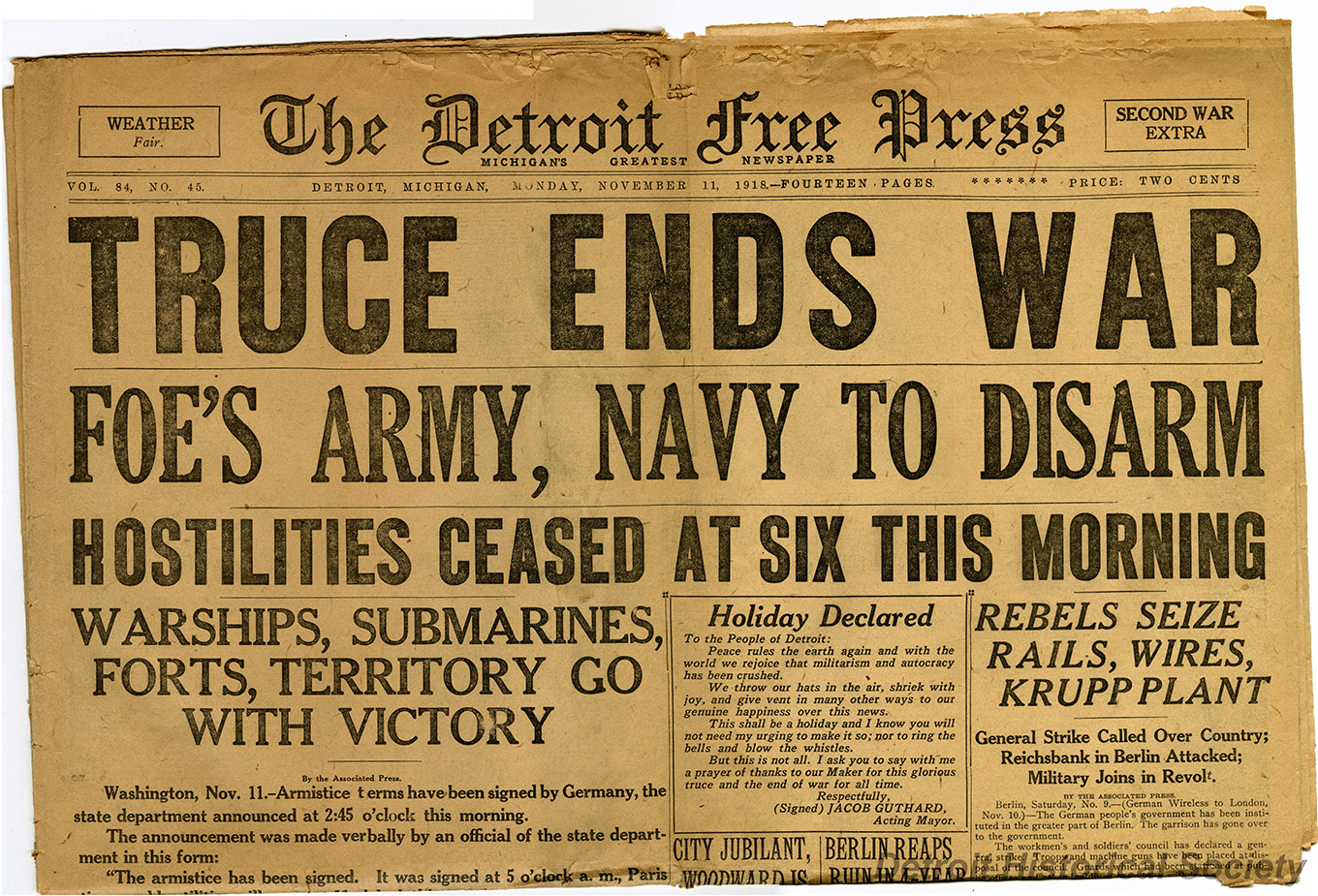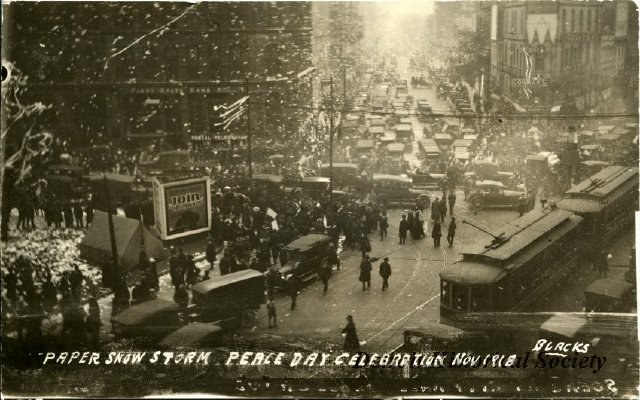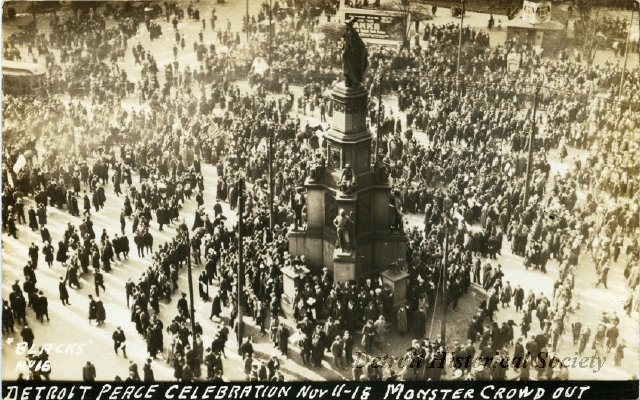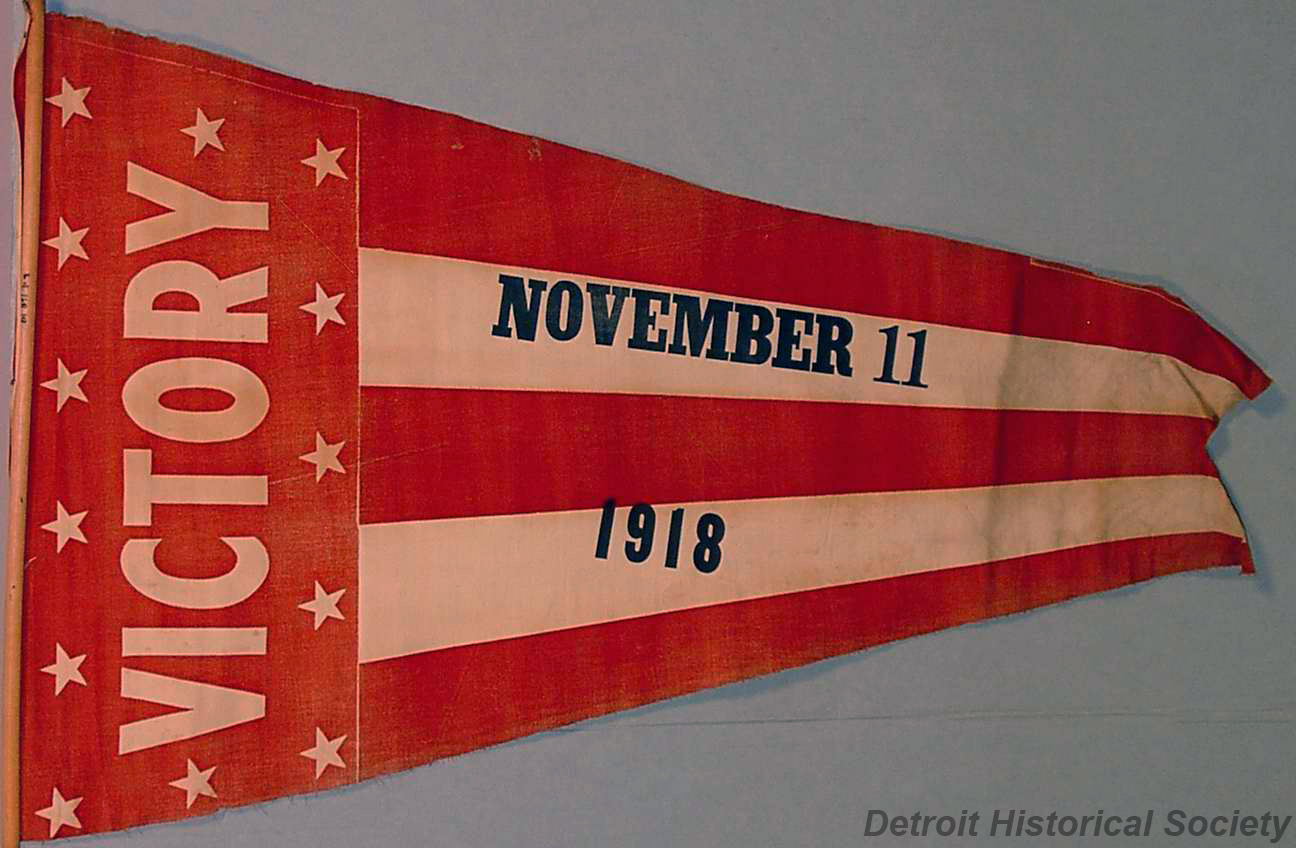Armistice Day
 Hostilities in World War I (then known as The Great War) ended on November 11, 1918. The United States had entered the conflict on April 6, 1917, as Congress declared war. When the news of the cease fire was announced, large crowds gathered at Campus Martius and elsewhere in Detroit to celebrate the peace.
Hostilities in World War I (then known as The Great War) ended on November 11, 1918. The United States had entered the conflict on April 6, 1917, as Congress declared war. When the news of the cease fire was announced, large crowds gathered at Campus Martius and elsewhere in Detroit to celebrate the peace.
 Confetti fills the air in a celebration of peace (Griswold Street, Lafayette Boulevard, and Michigan Avenue 1918).
Confetti fills the air in a celebration of peace (Griswold Street, Lafayette Boulevard, and Michigan Avenue 1918).
 A large crowd gathers under the Soldiers' and Sailors' Monument in Campus Martius to celebrate peace. (1918)
A large crowd gathers under the Soldiers' and Sailors' Monument in Campus Martius to celebrate peace. (1918)
A year later, on November 11, 1919, President Woodrow Wilson designated the first commemoration of Armistice Day, "To us in America, the reflections of Armistice Day will be filled with solemn pride in the heroism of those who died in the country’s service and with gratitude for the victory, both because of the thing from which it has freed us and because of the opportunity it has given America to show her sympathy with peace and justice in the councils of the nations…" In 1938, Armistice Day was made a legal holiday, recognizing the contributions of World War I veterans. Following World War II and the Korean War, in 1954 Congress amended the legislation to change the name of Armistice Day to Veterans Day, in order to honor American veterans of all wars.
 A victory pennant celebrating the end of World War I. (1918)
A victory pennant celebrating the end of World War I. (1918)
In 1968, the Uniform Holiday Bill moved Veterans Day observance from November 11 to the fourth Monday in October, in order to give Federal employees a three day holiday. There was controversy over the change in the date, and in 1975 President Gerald Ford signed legislation returning observance to November 11. Today, we celebrate and thank all veterans for their service. Along with the Black Historic Sites Committee, the Detroit Historical Society will personally honor veteran Ernest C. Browne, Jr. for his service in World War II, to the city of Detroit, and to black history by founding both the Black Historic Sites Committee and the Tuskegee Airmen National Museum.

